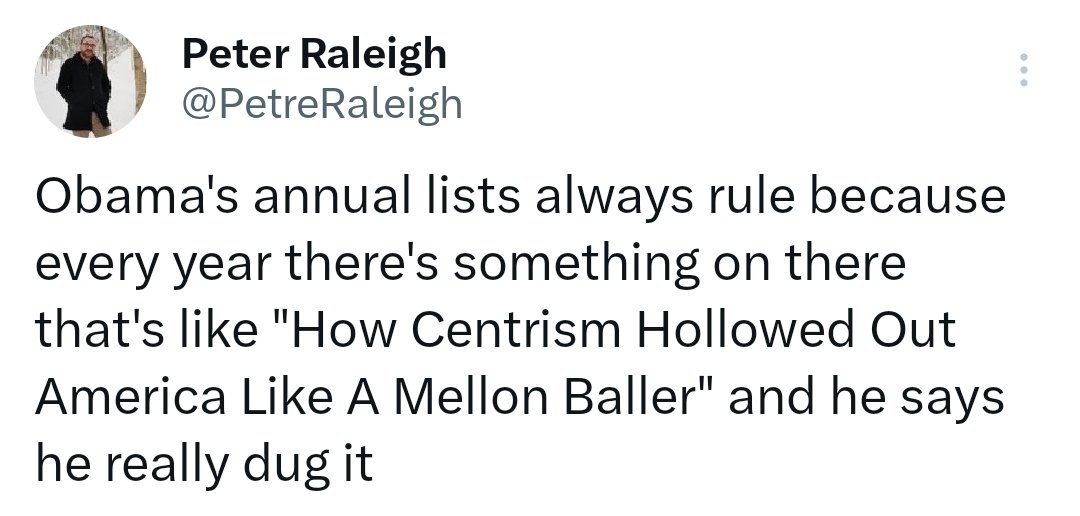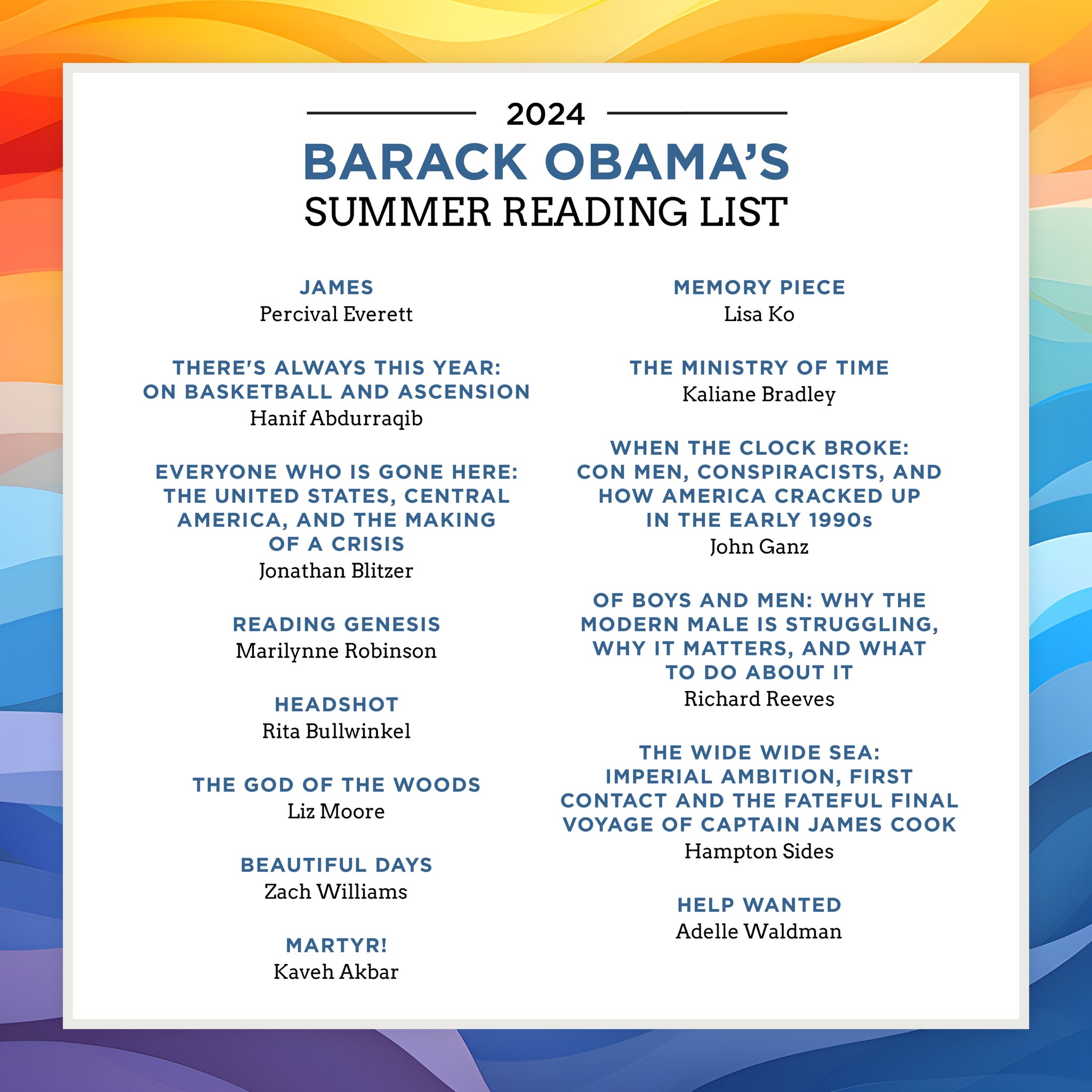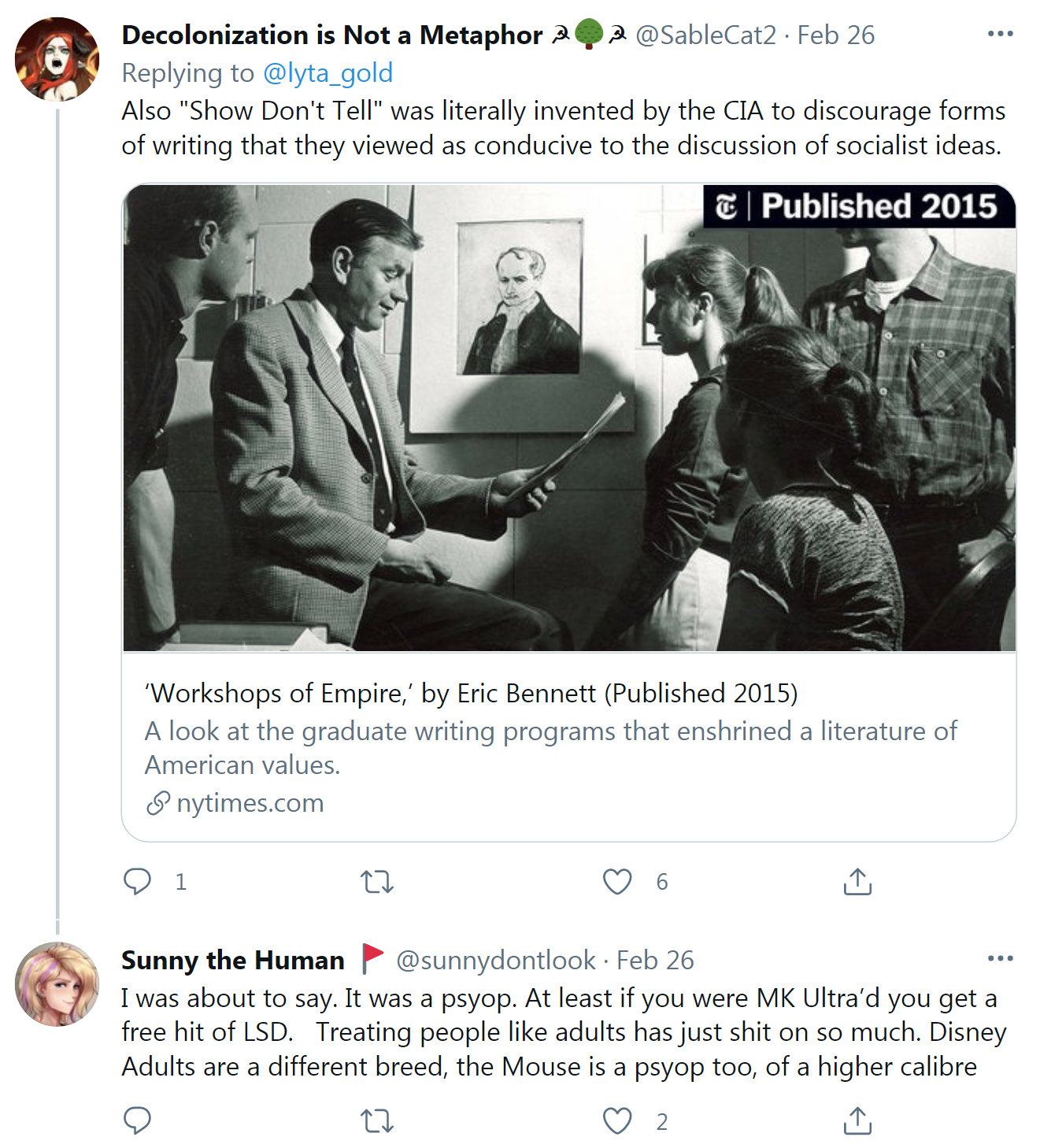Standing up and screaming “Kim Jong Un wife guy!” as loudly as I can in celebratory triumph in the break room.
Coca_Cola_but_Commie
I’d swear my home town’s homecoming parade gets a better turnout than this.
Can we agree that your most important advisor is indispensable to the realm? That their honor is unimpeachable? That you have the utmost faith in them and their abilities and you know they'd never betray you and seize the crown for themselves?
gaypayoo
If you, like me, were confused why you've seen this image before, this is why:
https://knowyourmeme.com/memes/guy-pointing-a-gun-at-elon-musk
I watched that clip on CNN and after saying that Trump accused Elon of having Trump Derangement Syndrome. Extremely funny stuff.
CW: liberal zionism, genocide apologia
https://www.vox.com/politics/414049/reading-books-decline-tiktok-oral-culture
I was reading this article, which is interesting but flawed, about how a group of thinkers believe that society is devolving from a literate culture back into an oral culture (and how that will spell the doom of Liberalism, and herald the return of tyrant kings). The author is ambivalent about that premise while maintaining that the overall decline in literacy is not good and probably a sign of bad things to come. I was even thinking of making a post out of it. But then I got to this bit:
[T]here are several reasons to question the broader premise that declining deep literacy is the driving force behind illiberal politics in America today.
...
Likewise, illiberal leftists — such as those who authored apologias for the October 7 massacre — are not typically distinguished by their lack of literary erudition (and much the same can be said of liberal intellectuals who’ve rationalized Israeli war crimes in Gaza). Nor were the Stalinists of yesteryear especially unacquainted with libraries.
Maybe it's just my personal hatred of the word 'illiberal', but I can't bring myself to engage more with the article, which kind of peters out at the end anyway. The author seems unclear where to point the blame for America's illiberal turn. Is it that nativist hicks are forcing the educated elite out of power? Is it that phones are bad? But what about these stats that indicate phones are good and made us woke about the gays? But how does that fit with the existence of Andrew Tate, the evil man who lives in the phone of every teenage boy? Socrates once condemned writing, so maybe if I say AI is bad somebody will think that makes me look a fucking idiot so I won't say that even though I believe it.
I really was thinking about how I suspect the idea that America was once shaped by an engaged and literate electorate (as was theorized earlier in the article) is misguided, that the US has long taken its cultural cues from the elites, that those elites were once well-educated people engaged in the project of Liberalism, and then once education became for the hoi polloi and Liberalism lost its moral standing to Socialism the elites gave up all pretense of giving a shit sometime around when JFK took one to the dome. I mean there's more to it than that because obviously the views of the masses have mattered and had an effect on things (largely in how the bourgeois respond to those views) but not in the orderly-and-learned-citizens-engaging-in-(non-disruptive)-civic-duty way I feel was implied early on in the article. You could also make an argument that the elites never gave a shit at all, that it was always a farce, that all this is business as usual and the only difference is that now even VOX writers can see that. But the whole thing ends on such a disappointing note and I've got better things to do with my time (I should have been asleep two hours ago), so I'm not going to think any more about this.
Didn’t they already try to bomb a boat that Greta could’ve been on like a month ago?
I watch a bit of Dropout and on one of their shows there was a bit where they had a celebrity judge and they were doing a survivor parody, I think. Can't remember who the celebrity was, I guess it doesn't matter. But Adam Conover was there, sort of randomly because he'd never been in an episode of that particular show before, and I remember thinking it was clear that he was only there because he was friends with the boss and must have wanted a chance to be around the celebrity guest. He just stuck out like a sore thumb because this was one of their improv shows which are entirely built around the actors' rapport with one another, a sizable part of the appeal is that you can tell all the performers and crew are friends who are hanging out, and none of the other performers seemed to know what to do with or say to Adam. I didn't necessarily feel like the other performers disliked Adam or anything, it was just very much the "friend of a friend who you don't know or have anything in common with has come to the get-together and it's making things slightly awkward" vibe.
Also he just wasn't very funny.
I actually kinda like Rogue One but the main thing I remember about the movie is that when they properly introduce the blind monk character, Chirrut Îmwe, it's in the middle of a fight and he shows up to knock out stormtroopers with his walking stick. And at first it's sort of cool, but then it goes on forever, and it starts to feel silly, and you can feel the cracks in the choreography because you start to think "surely one of these guys would just shoot him in the back" and then the character is just there and basically doesn't do or say anything of significance until his death scene. Sort of the problem of the entire movie in microcosm. Lots of interesting ideas for characters that don't get much to do or say. Even the best fleshed out character, Jyn, feels contradictory and ultimately thinly characterized.
As I always say, the novelization is much better.
Hey I don't know how aware you are of this but they just put out a biopic about your life, mostly about you joining the rebellion. It was pretty good, they got Diego Luna to play you and everything. Maybe a little prettier than the real thing, eh? Anyway, while watching I kept waiting for you to directly address the audience and specify that you are the exact same type of communist that I am, but you never did. Why was that cut from the film, do you think?






In preparation for 28 Years Later I decided to rewatch Days. It’s been probably 15 years since I last saw the film, mostly I remembered Brendan Gleeson and that bit at the beginning of the movie where Cillian Murphy is walking around a deserted London.
I forgot that Christopher Eccleston is in it, and also that in the last act Cillian Murphy, who was just a normal man thrust into the apocalypse, turns into a damn operator. Like fucking Solid Snake. Or if that’s not right (I’ve never played a MGS game) then like Corvo from Dishonored.